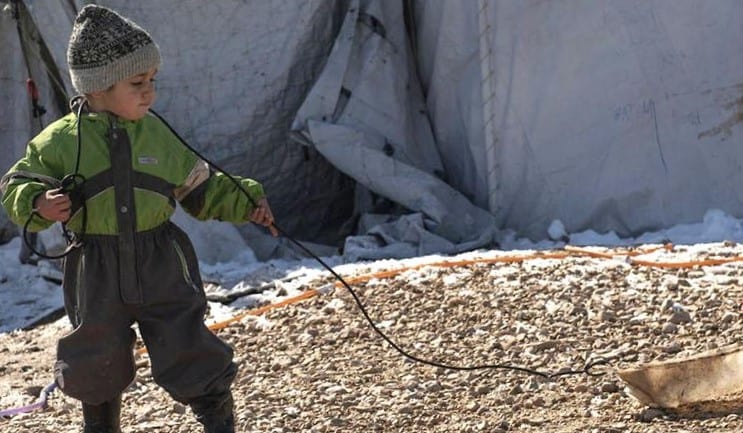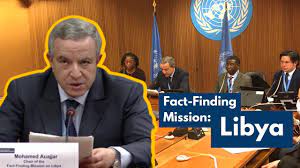
International Day of Innocent Children Victims of Aggression
“Children in Libya, including refugee and migrant children, continue to suffer grievously amidst the violence and chaos unleashed by the country’s longstanding civil war”, Statement by UNICEF Executive Director Henrietta Fore[i].
The world celebrates on the fourth of June every year “the International Day of Innocent Children Victims of Aggression”, with the aim of acknowledging the pain suffered by children throughout the world who are the victims of physical, mental and emotional abuse. This day affirms the UN’s commitment to protect the rights of children. Its work is guided by the Convention on the Rights of the Child[ii], the most rapidly and widely ratified international human rights treaty in history. Libya ratified and acceded to the Convention on April 15, 1993.
Article (38) of the Convention on the Rights of the Child[iii] stipulates respect for the rules of humanitarian law with regard to children in armed conflicts, where all measures must be taken to ensure that children under the age of 15 do not participate directly in hostilities, or are recruited into military service.
Article (39) of the Convention[iv] states that the signatory states must take appropriate measures to promote physical and psychological recovery and social reintegration of a child victim of: any form of neglect, exploitation, or abuse; torture or any other form of cruel, inhuman or degrading treatment or punishment; or armed conflicts..
In Libya, with the start of hostilities by the so-called “Operation Dignity” in May of 2014, led by retired Major General Khalifa Hifter, which led to armed conflicts in cities such as Benghazi and Derna in eastern Libya, the suffering of children as a result of the hostilities worsened. In 2016, Amnesty International reported[v] on the situation of families trapped by Haftar forces in the suburb of Ganfouda, where 130 families, including many children, were then under a complete siege. There was neither food nor drinking water available, and the report described the health situation of the children as “Children look like skin and bones because of the lack of food and poor nutrition“, according to one of the residents.
According to the report of the Libyan Red Crescent Society[vi], issued on April 18, 2015, the war in Benghazi resulted in the displacement of more than 250 thousand people from the city, approx. 110 thousand of whom were displaced to other neighborhoods of the city, while the rest were displaced to other cities, the vast majority of them to Western Libya. More than five years after the war began, tens of thousands of them are still internally displaced in Libya and some abroad. They cannot return, due to the seizure of their properties and threats of revenge by tribal and militant militias allied with Haftar[vii]. The war also led to the suspension of studies in all of the city’s schools, institutes and universities for a whole year.
In 2016, Haftar forces laid a stifling siege on the city of Derna, which has a population of 100,000 people. The city’s only general hospital was bombed, fuel and cooking gas were almost completely cut off, and the city experienced acute shortages of vaccines for children. Artillery shelling and air raids also resulted in many casualties among children. In the period from August 2014 to August 2018, the number of children, victims of the hostilities were reached 55, among the wounded and killed, and made up 15% of the number of civilian victims.
Human Rights Solidarity, in its annual reports on the victims of armed hostilities in Libya, estimates the number of children victims of hostilities to be approximately 220 children. In 2017, there were 61 children were victims of hostilities[viii], in 2018, 49 children[ix], and in 2019, 65 children[x]. During the first three months of 2020, the number of children victims of aggression increased to 43 children[xi].
The security, living and service conditions for children, in Tripoli and its environs, have seriously deteriorated, because of the military attacks on the city by militias loyal to retired Haftar, April 4, 2019. Ms. Henrietta Fore, UNICEF Executive Director[xii], in her statement last January, said ” Indiscriminate attacks in populated areas have caused hundreds of deaths, and UNICEF has received reports of children being maimed or killed. Children are also being recruited to the fighting. Meanwhile, more than 150,000 people, 90,000 of whom are children, have been forced to flee their homes and are now internally displaced. Infrastructure on which children depend for their wellbeing and survival has also come under attack. Nearly 30 health facilities have been damaged in the fighting, forcing 13 to close. Attacks against schools and the threat of violence have led to closures and left almost 200,000 children out of the classroom. Water systems have been attacked and the waste management system has virtually collapsed, greatly increasing the risk of waterborne diseases including cholera”.
Concerning refugees and migrants, she added[xiii] “The 60,000 refugee and migrant children currently in urban areas are also terribly vulnerable, especially the 15,000 who are unaccompanied and those being held in detention centers. These children already had limited access to protection and essential services, so the intensifying conflict has only amplified the risks that they face”.
In a joint statement by the WHO and UNICEF[xiv], the two organizations sounded the alarm over “severe vaccine shortages in Libya that are putting more than 250,000 children at severe risk. The situation is made worse by the continued armed conflict, the COVID-19 pandemic, disrupted health care services, regular power cuts, shortages of safe water supplies and the closure of schools and child-friendly spaces”.
On the International Day of Innocent Children Victims of Aggression, Human Rights Solidarity (HRS) calls on the parties to the conflict in Libya to respect the rules of humanitarian law, to commit to providing full protection and care for children, whether inside or near the areas of military operations, and to take appropriate measures to reduce the effects of armed aggression on children.
HRS also calls on international organizations to not only condemn and express concern about what happened and what is happening to children in Libya, but rather calls them to take measures to influence the Security Council and international public opinion to protect children in Libya.
[i] UNICEF: “Libya: Tens of thousands of children at risk amidst violence and chaos of unrelenting conflict”, January, 2020.
[ii] Office of the United Nations High Commissioner for Human Rights: “Convention on the Rights of the Child”, entry into force 2 September 1990, in accordance with article 49
[iii] Convention on the Rights of the Child, Article 38: “[1] States Parties undertake to respect and to ensure respect for rules of international humanitarian law applicable to them in armed conflicts which are relevant to the child. [2] States Parties shall take all feasible measures to ensure that persons who have not attained the age of fifteen years do not take a direct part in hostilities. [3] States Parties shall refrain from recruiting any person who has not attained the age of fifteen years into their armed forces. In recruiting among those persons who have attained the age of fifteen years but who have not attained the age of eighteen years, States Parties shall endeavour to give priority to those who are oldest. [4] In accordance with their obligations under international humanitarian law to protect the civilian population in armed conflicts, States Parties shall take all feasible measures to ensure protection and care of children who are affected by an armed conflict”.
[iv] Convention on the Rights of the Child, Article 39: “States Parties shall take all appropriate measures to promote physical and psychological recovery and social reintegration of a child victim of: any form of neglect, exploitation, or abuse; torture or any other form of cruel, inhuman or degrading treatment or punishment; or armed conflicts. Such recovery and reintegration shall take place in an environment which fosters the health, self-respect and dignity of the child”.
[v] Amnesty International: “Libya: Civilians trapped in Benghazi in desperate conditions as fighting encroaches”, September 30, 2016.
[vi] Libyan Red Crescent Society: “Statistics of the number of displaced people, as of April 1, 2015”, April 18, 2015, Arabic.
[vii] Human Rights Watch: “Libya: Displaced Benghazi Families Prevented From Return, Torture, Disappearances, Property Seizure”, February 1, 2018.
[viii] Human Rights Solidarity: “Casualties of Armed Clashes in Libya in 2017”, April 29, 2018, Arabic.
[ix] Human Rights Solidarity: “Casualties of Armed Clashes in Libya in 2018”, February 12, 2019.
[x] Human Rights Solidarity: “Casualties of Armed Clashes in Libya in 2019”, January 28, 2020.
[xi] Human Rights Solidarity: “Casualties of Armed Clashes in Libya January – March 2020”, April 10, 2020.
[xii] Ibid.
[xiii] Ibid.
[xiv] UNICEF: “Over quarter of a million children in Libya are at risk from vaccine-preventable diseases”, Joint UNICEF & WHO Press Release, May 19, 2020.




